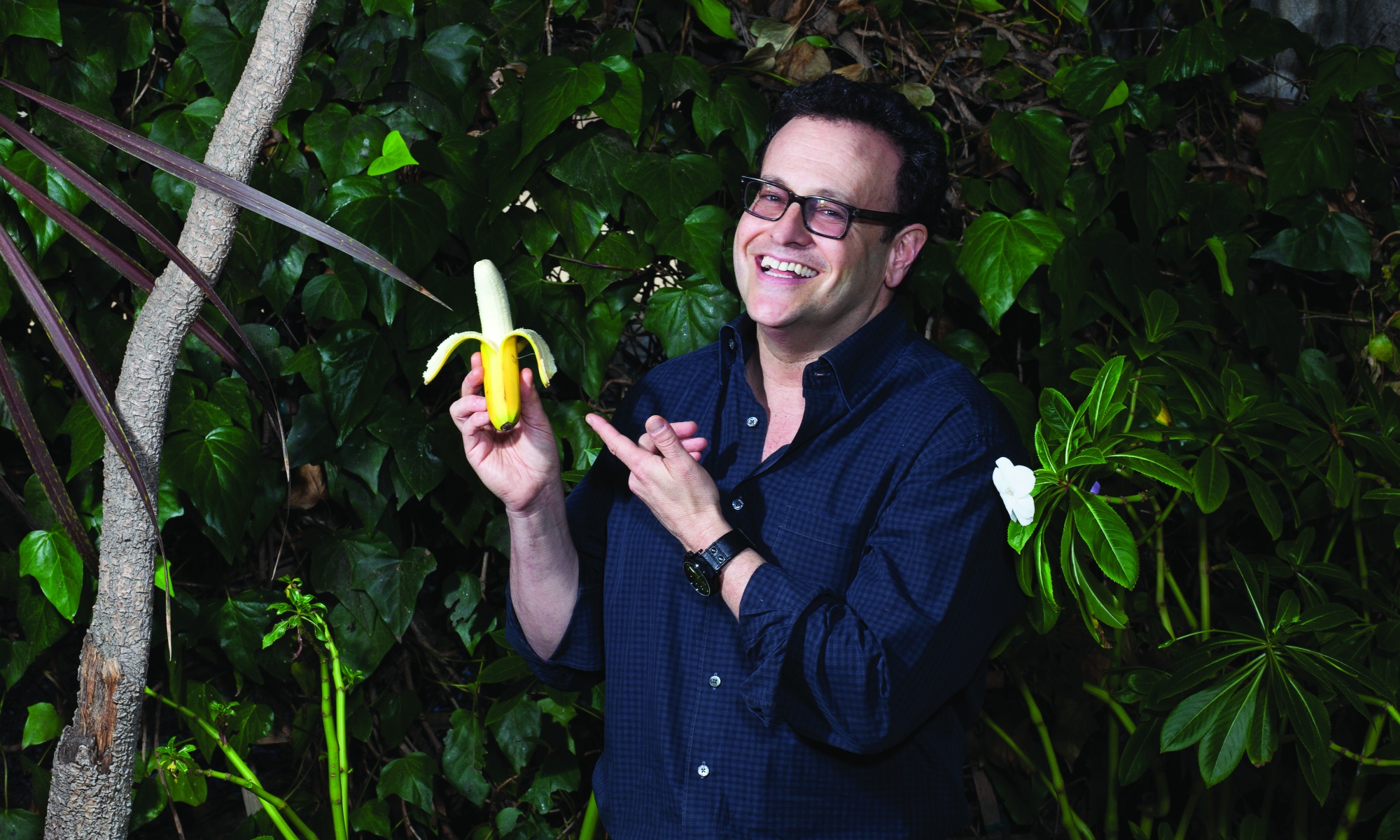Paul Brownfield is an AwardsLine contributor. This story appeared in the June 12 issue of AwardsLine.
On May 26 at 12:01 a.m., 15 new episodes of Arrested Development went live on Netflix; probably, by 5 a.m., the series’ legions of fans had exhausted the new supply. The cancellation of Arrested by Fox in 2006, after two seasons, prompted an afterlife of rumors and almost-announcements, as series creator Mitch Hurwitz worked on a feature script of his cult series. Like the fans, Hurwitz didn’t want to let go of his extended band of crazies, the Bluths, either. And then Ted Sarandos, Netflix’s chief content officer, suggested resurrecting the show to Imagine Entertainment’s Ron Howard. “And Ron said, ‘That’s a very nice thought, I don’t think it’s ever going to happen,’” Hurwitz explains. Except it did happen.
How different was the process in working with Netflix?
I wasn’t turning scripts in, because of the nature of the thing. We weren’t shooting one a week. We’d shoot pieces of eight different episodes in any given week. We were shooting 12, 14 pages a day, shooting like crazy. We screened it at the premiere—it was the first time an audience had seen it, but it was also the first time I’d seen two (episodes) in a row. I’d just been making them and putting them in the pipeline. And I guess that’s the case usually with television. The difference with this one, though, is that it’s all coming out on the same day. And it will be viewed by some as an eight-hour movie.
Would you have preferred that Netflix do a more gradual roll-out?
I was kind of advocating for a while, how about five a week? And they said, “No, our brand is, we don’t want to chase the traditional things. We don’t chase opening weekends. We want to provide content when people want it, how they want it. We’re a supermarket, not a restaurant.” They didn’t say that, but it’s kind of like that, you know?
Do you care how the episodes are viewed, whether in one sitting or not?
The one thing I really, really, really care about, and it’s just for (the fans’) enjoyment, is that they have to be watched in order. A lot of press got out saying, “Oh, you can watch them in any order.” That was kind of an ambition of mine, and I quickly discovered that the human brain doesn’t work that way. We like stories to have beginnings, middles and ends. It was ambitious, and you try to learn as you go. And what I realized is, particularly with jokes, punchlines are funnier coming after setups. That’s a lot of what we’re doing.
At one point, Showtime was going to resurrect Arrested Development.
What was presented to me was, it’s going to be half the cast, half the fees, half the license fee. At that point it really didn’t make sense to do it. Showtime was great, (but) they didn’t want to spend as much money as we’d spent at Fox, which would have meant paring down the cast and doing a smaller show. And I had never wanted to do that. That had been a longtime struggle, to simplify the show. Not necessarily lose cast members, but, do you have to have a story for every character in every show? I liked the idea of this family all being intertwined.
How was it different writing to a cult audience for a streaming series versus having to worry about ratings on a broadcast or cable network?
Comedy is about an audience. I’ve been working on this for a long time now, so I really had time to go through a lot of the range of what I think people want, the ways in which I want to defy expectation, the ways in which I want to undermine expectation, or reward it. But ultimately it’s all through the filter of my own creativity, obviously. It definitely isn’t pandering. In fact, I did go out of my way to not do the greatest hits. There are some notable absences. But I wouldn’t have done that had I not thought there was a future to this. I have places for things down the road.
Once you got the initial greenlight to create new episodes, did you go out and hire writers?
Because this was still speculative, we did not have the actors’ names on the dotted line. Not because the actors were being recalcitrant or anything, but because they had schedules. They couldn’t just say, “Sure, use me two weeks whenever you want.” Three of my longtime colleagues I brought in: Jim Vallely, Dean Lorey and Richie Rosenstock. I was able to get them to be full-time players, although they still weren’t paid like they would be on a normal show. They had to take a risk too. Then the other people we got as weeklies, and they left. I mean, because we weren’t able to pay competitively what, you know, Community would pay, which is a known quantity, I’d get some of these guys for three weeks and they’d leave. That’s why you see endless names on the credits. Because everybody was there for three weeks and left. (Laughs.) Which almost became harder. I’d have to spend two days just explaining it every time a new writer would come in.

